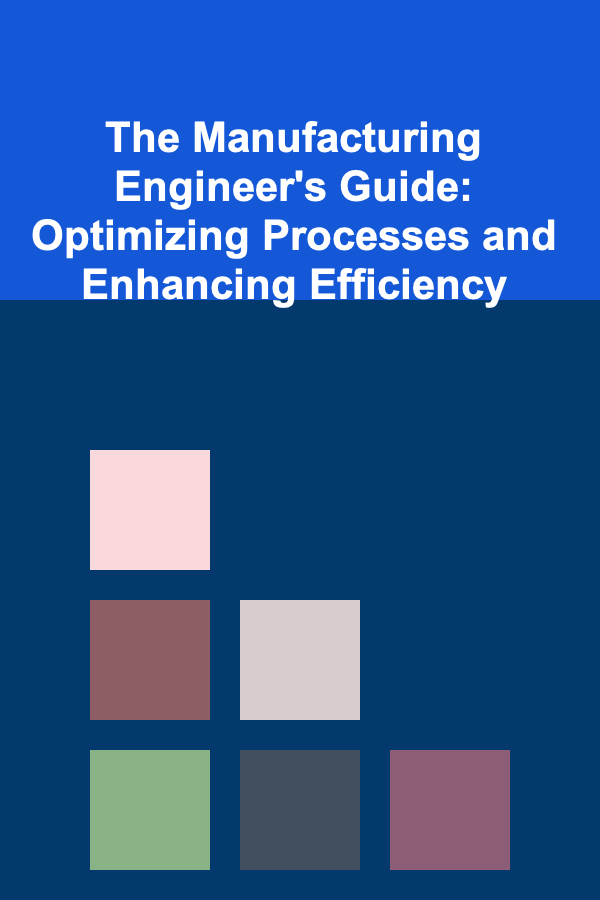
How To Grasp the Concept of Free Will
ebook include PDF & Audio bundle (Micro Guide)
$12.99$11.99
Limited Time Offer! Order within the next:

Free will is one of the most debated and complex topics in philosophy, neuroscience, and psychology. It's a concept that many people believe in intuitively, yet it's notoriously difficult to define and understand fully. The idea that individuals have the ability to make choices independent of external determinants or internal constraints has profound implications for ethics, responsibility, and human agency. However, it's also an idea fraught with contradiction. Do we really have free will, or is every decision we make a result of determinism, fate, or some combination of external influences?
In this article, we will explore the concept of free will from multiple perspectives, breaking down its philosophical, scientific, and psychological dimensions. We will look at the history of the free will debate, the arguments for and against it, and the various theories that try to reconcile human freedom with the structure of reality.
Philosophical Perspectives on Free Will
1.1. The Classical Debate: Determinism vs. Free Will
The question of free will has deep philosophical roots, going back thousands of years. Ancient philosophers like Plato and Aristotle recognized the tension between freedom and determinism. Determinism, the view that every event or state of affairs, including human actions, is the result of preceding events in accordance with natural laws, stands in opposition to the idea of free will, which posits that individuals have control over their choices and actions.
The classical problem of free will can be summarized as the following dilemma:
- Determinism: Everything in the universe, including human decisions, is determined by prior causes. If everything is determined, can we really be said to "choose" anything freely?
- Free Will: People have the capacity to make choices independent of external influences or causal chains. If free will exists, how does it fit with a seemingly deterministic universe?
Philosophers such as Baruch Spinoza and David Hume contributed to this discussion by suggesting that free will might not be an absolute or unrestricted ability, but instead something that can exist within the constraints of causal laws. They argued that while actions may be caused by previous events, this doesn't mean individuals can't be said to "freely" choose, so long as they are acting according to their own desires, even if those desires themselves are influenced by prior causes.
1.2. Compatibilism: Reconciling Free Will with Determinism
One of the most influential views in the philosophy of free will is compatibilism, a theory that seeks to reconcile determinism with free will. Compatibilists argue that free will is not about being free from causality or external influences, but about acting in accordance with one's own desires, beliefs, and intentions, without coercion or external constraint.
For compatibilists like John Locke and Thomas Hobbes, freedom is not defined by the ability to act in any way one wishes but rather by the ability to act without being forced or constrained by external factors. According to this view, even though our actions may be caused by past events, we can still be said to act freely if we are acting according to our internal motivations.
1.3. Libertarianism: The Case for True Free Will
In contrast to compatibilism, libertarianism argues that free will is incompatible with determinism, and for an individual to act freely, they must have the ability to make choices that are not determined by prior events. Libertarian philosophers such as Roderick Chisholm and Robert Kane have argued that people are truly free when they have the power to choose between multiple possible actions, regardless of past events or causal influences.
For libertarians, free will is an essential component of human agency. Without true freedom to choose, they argue, moral responsibility and accountability would be impossible. If our actions are determined by factors beyond our control, then we can't be held morally responsible for them.
1.4. Hard Determinism: The Denial of Free Will
On the other extreme, hard determinism takes the view that free will is an illusion. According to this perspective, all human actions are determined by prior causes, including genetic predispositions, environmental influences, and the laws of nature. Figures like Baron d'Holbach and Sigmund Freud have advocated for this position, suggesting that our actions are merely the end result of a complex chain of causes that we have no control over.
Hard determinism holds that the idea of free will is a comforting illusion, one that allows individuals to feel in control of their lives when in fact their actions are completely determined by external factors. According to this view, moral responsibility is a construct of society, but it doesn't have a basis in human freedom.
The Scientific Perspective on Free Will
2.1. Neuroscience and the Illusion of Free Will
Modern neuroscience has challenged the traditional concept of free will in profound ways. One of the most famous experiments in this area is Benjamin Libet's experiment in the 1980s, which suggested that the brain begins to prepare for an action before we are consciously aware of making a decision. In the experiment, subjects were asked to make a simple voluntary movement, such as pressing a button, while their brain activity was monitored. Libet found that the brain's motor cortex showed signs of preparing for the action several hundred milliseconds before the subjects were consciously aware of their intention to move.
These findings have led some neuroscientists, like Sam Harris, to argue that free will is an illusion. Harris and others suggest that the conscious self is more of an observer than a creator of actions. In other words, our decisions might be initiated by unconscious processes in the brain, and what we perceive as "deciding" might actually be a post-hoc justification of actions that have already been set in motion.
2.2. The Role of Consciousness
If free will is the ability to make choices independent of external and internal influences, then what role does consciousness play? Can we truly exercise free will if much of our decision-making happens unconsciously? Daniel Dennett, a philosopher and neuroscientist, argues that although unconscious processes in the brain initiate actions, human consciousness still plays a crucial role in decision-making. According to Dennett, our awareness and reflection upon the choices we make give us the ability to "edit" our decisions, refine our intentions, and even override impulses, thus allowing for a form of free will that is compatible with the deterministic workings of the brain.
2.3. Genetic and Environmental Influences
Beyond brain activity, free will is also shaped by genetic predispositions and environmental factors. From a biological standpoint, many aspects of our personality, temperament, and behavior are influenced by genetics. For example, research has shown that some individuals may have a genetic predisposition towards certain behaviors, such as impulsivity or risk-taking. While this may not negate free will entirely, it does suggest that our ability to make decisions is not purely autonomous but is heavily influenced by factors outside our control.
Similarly, environmental influences such as upbringing, culture, and socio-economic conditions can affect the choices we make. For instance, individuals raised in impoverished environments may have fewer opportunities and constraints that influence their decisions, even if they have a strong desire to act freely. This raises the question: to what extent is free will truly "free" when external factors such as genetics and environment shape our potential choices?
Psychological Perspectives on Free Will
3.1. Cognitive Science and Decision-Making
From a psychological perspective, decision-making is often framed as a cognitive process in which individuals weigh different options, consider possible outcomes, and make choices that maximize their well-being or satisfaction. Cognitive psychology suggests that decision-making is influenced by a range of factors, including emotions, cognitive biases, past experiences, and social pressures.
The dual-process theory , popularized by psychologists such as Daniel Kahneman, proposes that human decision-making involves two distinct systems: the intuitive, fast, automatic system (System 1) and the reflective, slow, and deliberate system (System 2). While System 1 makes decisions quickly and effortlessly, System 2 is more reflective and requires conscious effort. Many of our choices may be shaped by System 1 processes, which are often outside our conscious control, but we can still exercise free will through reflective thinking and deliberate action via System 2.
3.2. The Role of Motivation and Self-Control
Another important aspect of free will in psychology is the role of motivation and self-control in making choices. According to self-determination theory (SDT), developed by Edward Deci and Richard Ryan, humans have an inherent drive to engage in activities that align with their interests and values. Free will, from this perspective, is not just about the ability to choose but also about the ability to pursue goals that are intrinsically motivated rather than driven by external forces like rewards or punishments.
Self-control, or the ability to resist temptations and delay gratification, is another crucial component of free will. Research in this area suggests that individuals with better self-control tend to make more deliberate and goal-directed decisions, as opposed to those who act impulsively or give in to short-term desires. This ability to control one's actions and make decisions in line with long-term goals is a key part of what it means to exercise free will.
Free Will in the Context of Ethics and Morality
The concept of free will is closely tied to ethics and morality. Many moral philosophers argue that for individuals to be held responsible for their actions, they must have some degree of freedom in their decision-making. If people are determined by their biology, environment, or unconscious processes, it becomes difficult to assign moral blame or praise.
The question of moral responsibility becomes even more complicated when we consider the extent to which people can control their behavior. If our actions are heavily influenced by unconscious brain processes or by social and environmental factors, can we really be held accountable for the choices we make?
Philosophers like Immanuel Kant have argued that moral responsibility requires free will. According to Kant, individuals must be able to choose between right and wrong in order to be morally accountable. Without free will, the concepts of justice and moral responsibility would lose their meaning, as people would not be able to act morally in the true sense.
Conclusion: A Multifaceted Concept
The concept of free will is complex and multifaceted, and no single theory or perspective can fully capture its essence. From a philosophical standpoint, we face the tension between determinism and the notion of human agency. From a scientific perspective, brain processes, genetics, and environmental factors all influence our choices, yet consciousness and reflection give us the potential to exercise control. Psychologically, motivation and self-control offer us ways to act in accordance with our values, but cognitive biases and unconscious drives complicate the picture.
Ultimately, the question of whether free will truly exists may never be definitively answered. However, the concept remains vital for understanding human behavior, ethics, and responsibility. Whether or not free will is fully realized, it continues to shape how we view ourselves as agents in the world and how we navigate our moral and existential dilemmas. Grasping the concept of free will requires an openness to the complexities and contradictions inherent in the human condition---recognizing both the limitations and possibilities of human choice.

How to Improve Your Home's Security Without Breaking the Bank
Read More
How to Sell Digital Products Successfully for Fitness Enthusiasts: A Comprehensive Guide
Read More
The Manufacturing Engineer's Guide: Optimizing Processes and Enhancing Efficiency
Read More
How To Master Video Compression
Read More
How To Give Constructive Feedback Cross-Culturally
Read More
How To Create Graphics for Online Courses
Read MoreOther Products

How to Improve Your Home's Security Without Breaking the Bank
Read More
How to Sell Digital Products Successfully for Fitness Enthusiasts: A Comprehensive Guide
Read More
The Manufacturing Engineer's Guide: Optimizing Processes and Enhancing Efficiency
Read More
How To Master Video Compression
Read More
How To Give Constructive Feedback Cross-Culturally
Read More